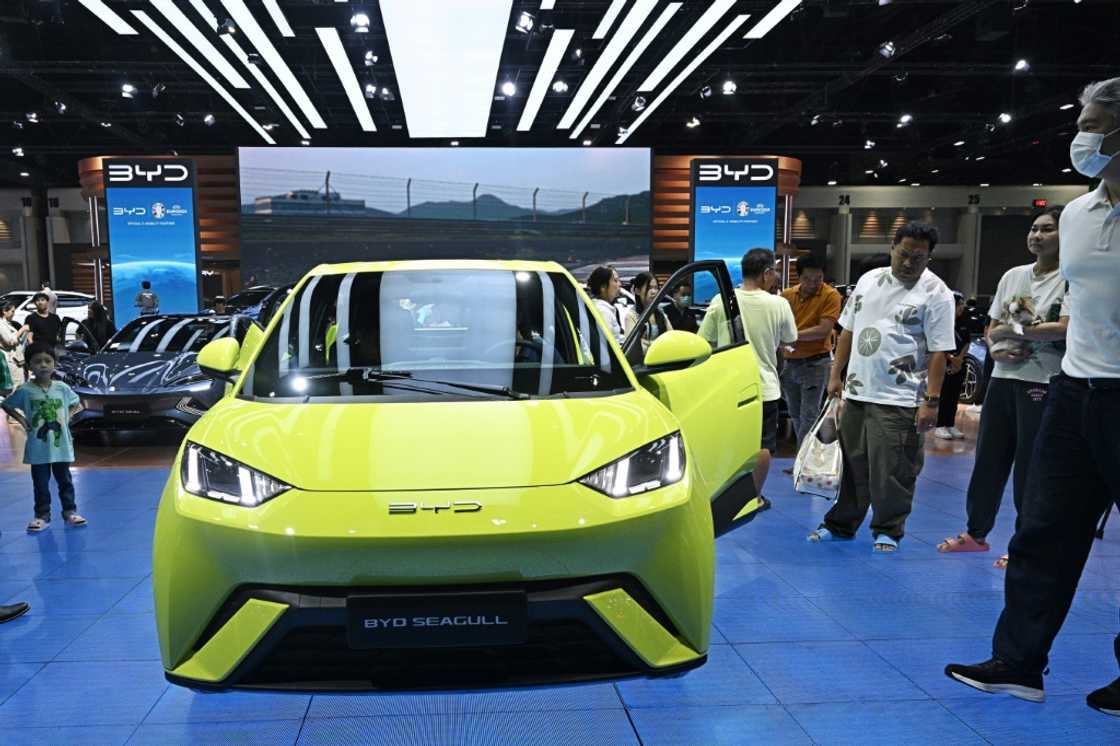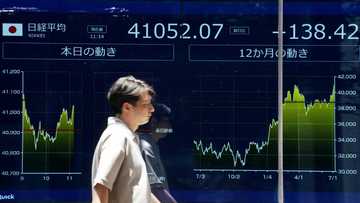China's BYD to open electric car plant in Turkey

Source: AFP
China's electric vehicle giant BYD will open a factory in Turkey, a government source told AFP on Monday, as the company continues its international expansion.
"BYD will open a plant in Turkey," the source said, adding the details would be announced by President Recep Tayyip Erdogan.
The news comes days after the EU slapped additional provisional tariffs of up to 38 percent on Chinese EVs following an investigation that concluded state subsidies meant they were unfairly undermining European rivals.
Turkish-made cars enjoy beneficial access to the EU under a customs union that dates to 1995 and the Marmara region around Istanbul has become one of the leading centres of the world's automobile industry.
Major carmakers including Fiat and Renault opened plants there at the beginning of the 1970s, with others like Ford, Toyota and Hyundai following, taking advantage of Turkey's position at the crossroads between Europe, Asia and the Middle East.
Turkish media reported that the factory would be a one-billion-dollar investment by BYD.
PAY ATTENTION: Click “See First” under the “Following” tab to see YEN.com.gh News on your News Feed!
Tariff-free
The land that was previously allocated for Volkswagen in Manisa in the north of the Western porty city of Izmir would be given to the Chinese company, the pro-government daily Yeni Safak reported.
"BYD is the world's largest manufacturer of electric vehicles and one of the most advanced in terms of technology and manufacturing quality," independent consultant Levent Taylan told AFP.
"Indeed, this will be an investment for the Turkish market but especially European market, by circumventing the customs tariffs imposed on vehicles of Chinese origin," he said.
He said BYD has a potential to sell around 20-25,000 vehicles per year on the Turkish market and export 75,000 to the EU.
"A plant (in Turkey) with 100-125,000 vehicles per year in installed capacity would be a reasonable investment," he added.
Under new Turkish regulations on investment incentives BYD will be able to circumvent a new 40 percent tariff that Turkey imposed on electric vehicle imports.
China has led the global shift to electric vehicles, with almost one in three cars on its roads set to be electric by 2030, according to the International Energy Agency's annual Global EV Outlook.
Chinese EV manufacturers have also stepped up exports, prompting many nations to take measures to protect their automakers.
They have also begun looking at manufacturing abroad, with BYD having already announced plans to open its first European factory in Hungary.
In July, BYD opened a factory in Thailand.
The plant in Rayong, an industrial area southeast of Bangkok, will be able to build up to 150,000 vehicles a year, according to the company, which dominates its domestic market.
Beijing has warned the EU tariff move could spark a trade war.
New feature: Сheck out news that is picked for YOU ➡️ click on “Recommended for you” and enjoy!
Source: AFP



